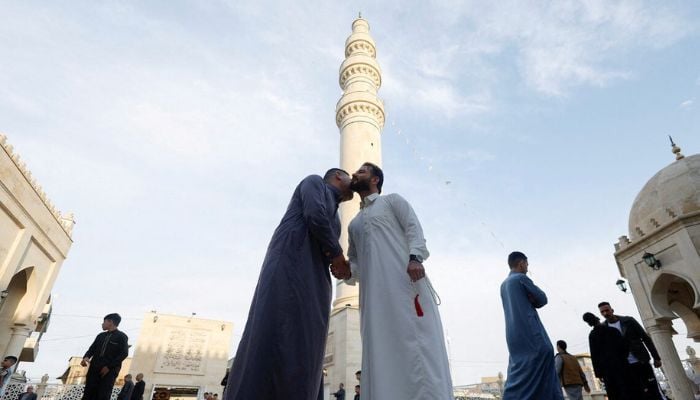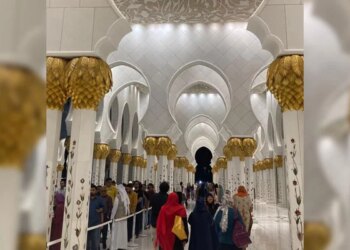Select Language:
Eid ul Adha, one of the most significant celebrations in the Islamic calendar, is expected to be observed on Friday, June 6 in the United Arab Emirates (UAE), according to the latest astronomical predictions released by the Emirates Astronomy Society.
The new moon, which signals the start of Dhu al Hijjah, the final month of the Islamic lunar calendar, is anticipated to be visible on May 27, marking May 28 as the first day of the month, as reported by Gulf News.
Ibrahim Al Jarwan, Chairman of the Emirates Astronomy Society, made this announcement.
He further explained that the crescent moon will be sighted at 7:02 AM UAE time on May 27 and will remain visible for about 38 minutes after sunset, which should allow for its likely sighting that evening.
If the astronomical predictions prove accurate, the Day of Arafah, which is a significant day of fasting and contemplation taking place on the 9th of Dhu al Hijjah, will be on Thursday, June 5, followed by Eid ul Adha on Friday, June 6.
The holiday period for Arafah Day and Eid ul Adha will cover the 9th to 12th of Dhu al Hijjah (1445 AH in the Islamic calendar), in accordance with the UAE’s public holiday schedule, which will amount to four days off work.
Should Eid ul Adha indeed occur on a Friday, residents of the UAE can look forward to an extended weekend, with Thursday and Friday recognized as official holidays, along with Saturday and Sunday being the customary weekend days.
This would create a four-day weekend for the entire nation.
It’s worth mentioning that, like all Islamic holidays, the precise date of Eid ul Adha is contingent on official moon sightings, which could potentially shift the date by one day.
If the crescent moon is not spotted on May 27, the start of Dhu al Hijjah will be postponed to May 29, which would push Eid ul Adha to Saturday, June 7.
In that scenario, the public holiday would still encompass four days—from Saturday through Tuesday—but would not align perfectly with the weekend.
Eid ul Adha, often referred to as the “Festival of Sacrifice,” commemorates the story in the Quran of Prophet Ibrahim’s willingness to sacrifice his son in obedience to God, a test of faith that was miraculously replaced with a ram.
The celebration includes prayers, family gatherings, and acts of charity, such as the ritual sacrifice of livestock, with the meat being shared among family, friends, and those in need.






